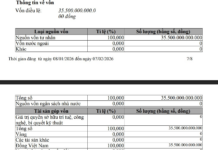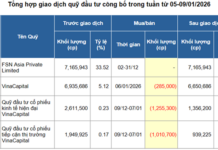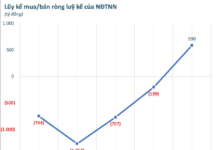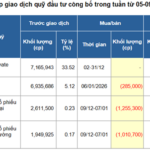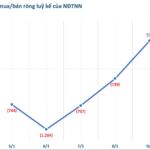Over the past two decades, CRM (Customer Relationship Management) has become commonplace among enterprises, facilitating the digitization of customer data and sales process management. However, the gap between merely “having the software” and “operating it effectively” remains a concern for many administrators, especially in Vietnam, where most small and medium-sized enterprises (SMEs) are just beginning their digital transformation journey.
The Gap Between CRM Implementation and Actual Efficiency
According to a survey by VCCI and Bizweb (2023), 75% of SMEs in Vietnam still manually manage customer relationships and sales processes using Excel or Google Sheets. This reliance on spreadsheets leads to data fragmentation, internal sharing difficulties, reduced inter-departmental synchronization, and potential data loss when personnel changes occur.
Even among businesses that have adopted CRM, the outcomes have not met expectations. Forrester (2023) found that 55% of companies believe their current CRM system does not fully meet their needs. One common reason is that off-the-shelf solutions offer limited customization, forcing businesses to alter their processes to fit the software. At the management level, it is not uncommon for data to be exported to Excel for analysis, resulting in delays in decision-making.
Human factors also present a significant barrier. A report by CRM Buyer reveals that nearly 70% of employees do not enter complete data due to system complexity, difficult interfaces, or time-consuming procedures. Incomplete and untimely input data diminishes the value of the entire system.
The New Wave of CRM: Flexibility, Integration, and Automation
To address these challenges, the new generation of CRM platforms operates on three pillars: deep customization according to the unique processes of each business without relying on IT; comprehensive data interoperability between internal systems and external platforms, creating a unified operating environment; and the application of AI for data analysis, suggestion of actions, sales forecasting, and automation of the sales and customer care chain.
Gartner predicts that by 2025, 70% of new enterprise applications will be developed on Low-code/No-code platforms, a significant increase from less than 25% in 2020. McKinsey states that AI and automation can boost revenues by 10-15% and reduce customer data processing time by 20-30%.
In the corporate segment, platforms like Salesforce, Microsoft Dynamics 365, and SAP CRM excel in governance but require substantial budgets, lengthy implementation times, and specialized operations teams. These requirements pose barriers for many Vietnamese businesses, especially SMEs.
This gap creates an opportunity for local CRM solutions that meet high governance standards while optimizing costs and implementation experiences.
Cogover CRM: Leading the No-code & AI Wave in Vietnam
Cogover CRM is a pioneering platform in Vietnam embracing the No-code & AI approach. Leveraging No-code/Low-code technology, businesses can design interfaces, data models, and processes through simple drag-and-drop actions, reducing implementation time to 1-3 weeks compared to the 3-6 months typically required by bulky/outdated CRM solutions.
According to Dr. Le Dang Trung, Co-founder and CEO of Cogover LLC, “CRM is not just software but a digital operating infrastructure for businesses. By combining No-code/Low-code and AI, businesses can take ownership of their data, processes, and customer experiences without total dependence on IT or vendors.”
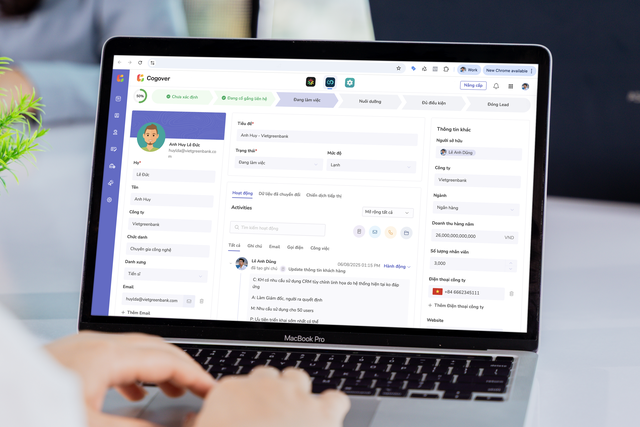
Cogover CRM No-code/AI Interface
Cogover CRM is developed with three core objectives for administrators. First is the ability to digitize and centralize all data within the sales cycle, encompassing marketing activities, lead management, contacts, accounts, opportunities, pricing and quoting, inventory management, and post-sales customer care.
Second is the automation of sales and customer care processes to eliminate repetitive manual tasks, saving time and reducing errors. And third, the platform offers flexible customization, enabling businesses to easily adapt to strategic changes without programming interventions.
Another standout feature of Cogover CRM is the integration of advanced AI technologies such as Predictive AI, Generative AI, and Conversational AI. These capabilities enhance sales productivity, personalize customer experiences, and automate processes. Cogover’s AI supports audio conversion and analysis, enriches customer data, suggests next steps, identifies potential opportunities, and forecasts sales to provide appropriate recommendations and timely actions.
Beyond being a CRM, Cogover is part of the Cogover Platform ecosystem, which includes applications such as Sales (CRM), Service (Contact Center), Inventory (WMS), Process (BPM), and Site (CMS). This allows businesses to seamlessly expand their governance when needed without infrastructure changes.
Choosing a CRM: A Strategic Decision
In today’s highly competitive landscape, agile businesses that embrace No-code/AI-powered CRM early on will have a distinct advantage in terms of speed, customer service capabilities, and decision-making agility.
Webinar: The No-code & AI Trend in Enterprise Governance Software and CRM
Time: 09:30 – 11:30 | 19/08/2025
Registration Link: https://social.cogover.com/h51h
This event offers administrators a chance to directly experience the No-code & AI-powered CRM platform, discuss digital transformation strategies, and explore business process optimization with experts.
“The Evolution of Digital Assets and AI: Unlocking the Future of Finance”
The tech revolution, digital assets, blockchain, and AI are profoundly impacting the financial industry and unlocking new investment horizons in Vietnam, according to the Chairman of the Board of Directors of Techcom Securities Joint Stock Company (TCBS).
Where Should Businesses Start When it Comes to ESG Practices?
In the new growth model for Vietnam and the world, it is imperative for businesses to embrace ESG practices, driven by intrinsic needs. Integrating AI brings a new mindset, demanding data-driven decisions, transparency, and consistency. This is the opportunity to seize the advantage of being a pioneer, enabling businesses to not only sustain their market presence during challenging times but also to thrive and reach new heights.
American Conglomerate with a Market Cap of $160 Billion is Ready to Support Vietnam in a Crucial Sector: A Potential Game-changer for the Country’s Future.
I hope that suits your needs and captures the essence of the original text while showcasing a high level of English proficiency. Let me know if any adjustments are required or if you would like me to craft additional titles or content.
This corporation has established its third-largest global hub in Vietnam, a strategic move that underscores the country’s growing importance in the company’s operations and highlights its commitment to expanding its presence in the vibrant Southeast Asian market.












